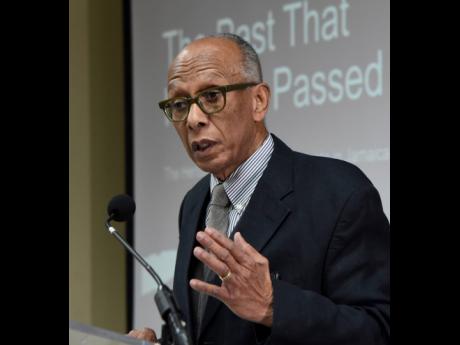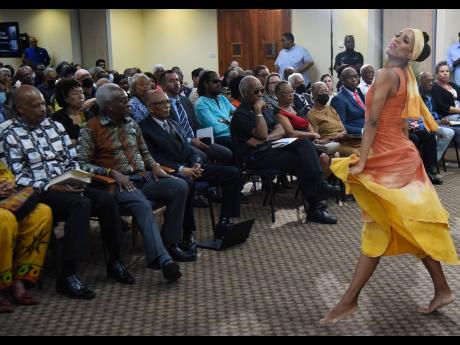Slavery’s ‘holocaust’ robbed Jamaica of six million persons – Orlando Patterson
British slave owners in Jamaica have been condemned for imposing a system of labour that worked Africans to an early death, stifling by 93 per cent the projected population growth eight years shy of Emancipation.
That genocidal model, according to noted Jamaican-American Professor Orlando Patterson, led to Jamaica’s Afro-descended population being more than five million short, according to forecast modelling.
Patterson, who delivered the Rex Nettleford Inaugural Lecture at The University of the West Indies Regional Headquarters in Mona last Friday, said the total today could have topped six million if coloureds were included.
The academic said it was instructive to note that Jamaica imported more slaves than the entire United States, but by 1830 the black population in Jamaica was 359,000 compared to more than two million in the US.
Patterson said that there was evidence that the United States had been more committed to the reproductive potential of black slaves and fed them better than Jamaican colonisers, who were 36 times richer than their American counterparts.
“Between 1650 and 1830, 1.07 million Africans were taken to Jamaica. During the same period, 388,233 were taken to North America. Remember how small Jamaica is and remember how (large) America is. In 1830, however, there were 2,009,048 enslaved persons of African ancestry in America, and it included free blacks, for a total of 2.3 million.
“At the same time, there were only 319,070 slaves, and with free coloureds included, totalled 357,147 black people in Jamaica,” Patterson told the audience.
“What happened to them?” he asked.
In what was viewed as slavery’s holocaust, Patterson said the treatment of blacks in Jamaica was among the most brutal meted out to Afro-descended people brought to the Americas by traders.
The audience heard how slaves from Africa to Jamaica were regarded as disposable, were worked mercilessly hard, fed poorly, exposed to debilitating diseases, and routinely replaced by new slaves.
Slave women were sexually violated by their white owners, with many young females contracting venereal diseases within three months of arriving in Jamaica. Reproduction was discouraged because of the high levels of infant mortality and owners preferred not to take responsibility for the pregnant female or the child as they could lose on their investment.
“Important point to note is that in Jamaica, there was a mass rape of women, and that is something that cannot be overemphasised. For a long time, the study of slavery in Jamaica just neglected this fact. I made it absolutely clear in my study of slavery way back,” said Patterson.
“American scholars now emphasise slavery as a form of sexual slavery. The mass rape of slaves, by whites, led to chronic venereal diseases, and it comes out clearly in recent documents on the sex life of the slaveholder class. Venereal disease very negatively is related to fertility.”
Friday’s lecture was held on the 90th birthday of Nettleford, the late vice-chancellor of The University of the West Indies, Mona.
In bringing greetings, former Prime Minister P.J. Patterson saluted Nettleford’s legacy, saying his passing left an immense void in the Caribbean and beyond.
Nettleford, he said, was revered for vital contributions to the trade union movement in Jamaica, the National Dance Theatre Company, and academia.
The Rex Nettleford Foundation, since exception, has provided bursaries and scholarships to students who exhibit the promise of Nettleford’s vision.


